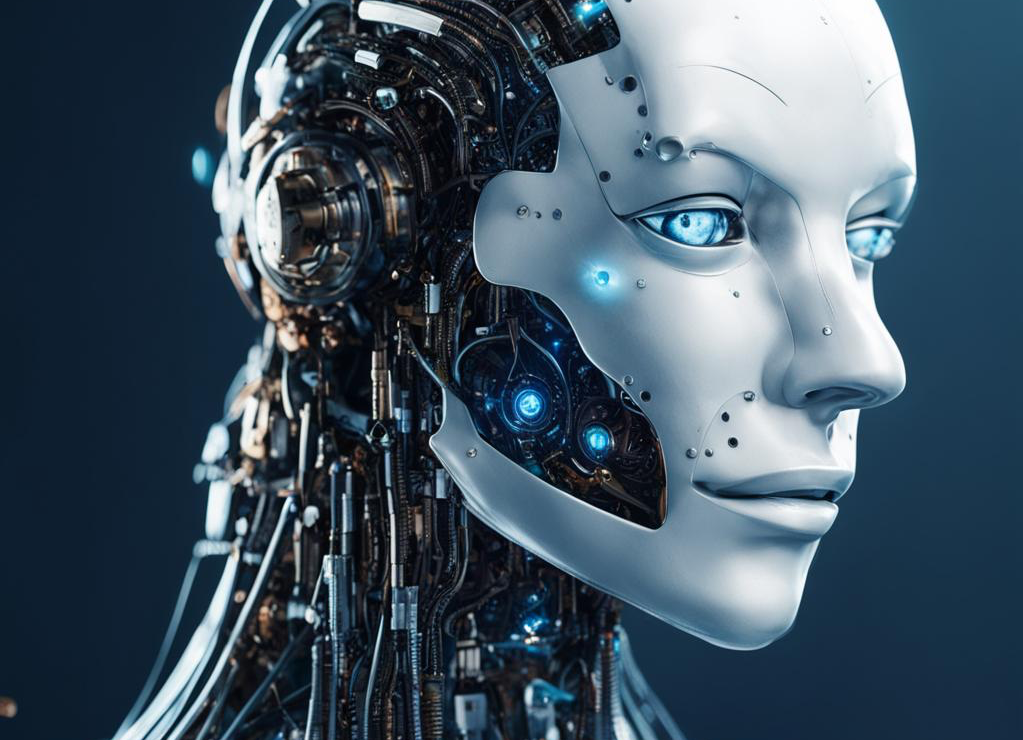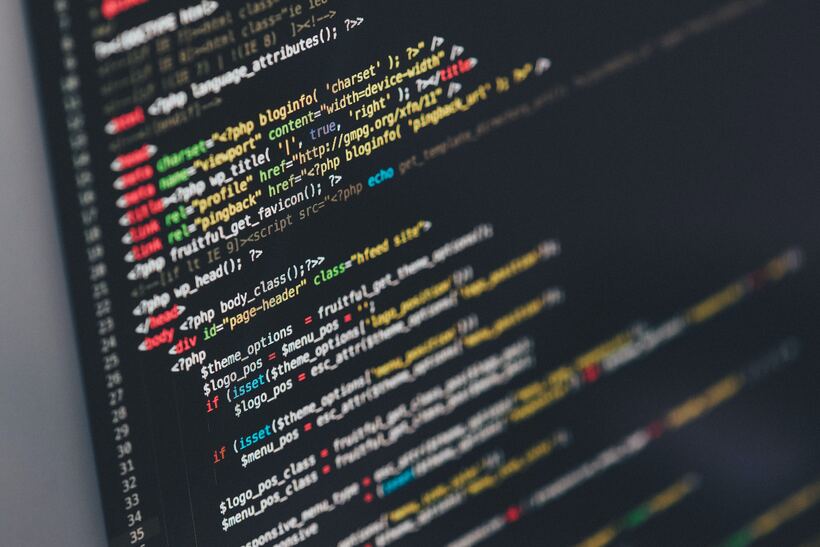
Welcome to the era where technology meets talent! In today’s rapidly evolving world, Artificial Intelligence (AI) has emerged as a game-changer in many industries – and the hiring process is no exception. Gone are the days of relying solely on resumes and interviews to assess candidates. With AI algorithms at our disposal, we now have the power to revolutionize how we hire, by reducing bias and promoting diversity like never before.
We’ll explore how AI is transforming traditional hiring methods, mitigating bias in recruitment processes, and fostering inclusivity in workplaces around the globe. So buckle up as we embark on an exciting journey into an AI-powered future that promises fairer opportunities for all applicants!
The Problem of Bias in Traditional Hiring Methods
Bias in traditional hiring methods has long been a problem that organizations have struggled to address. Whether consciously or unconsciously, biases can seep into the decision-making process and lead to unfair outcomes for candidates from underrepresented groups. One common source of bias is the reliance on resumes and cover letters, which may inadvertently reveal personal information that can influence evaluators’ judgments.
Another factor contributing to bias is subjective assessments during interviews. Human interviewers may be influenced by their own preconceived notions and stereotypes when evaluating candidates. This can result in qualified individuals being overlooked or disadvantaged based on factors unrelated to their skills and abilities.
There is evidence to suggest that bias exists even before the interview stage through referral-based hiring practices. When companies heavily rely on employee referrals, it can perpetuate existing homogeneity within an organization and limit opportunities for diverse talent.
These biases not only hinder individual applicants but also contribute to a lack of diversity within workplaces. This lack of diversity has been shown to impede innovation, creativity, and overall organizational success.
AI offers potential solutions for reducing bias in these traditional hiring methods. By leveraging machine learning algorithms, AI tools can analyze large amounts of data without being influenced by personal biases or stereotypes.
For example, AI-powered resume screening software uses natural language processing techniques to evaluate qualifications objectively while avoiding potentially biased indicators like names or educational backgrounds.
Video interviewing platforms powered by AI technology provide standardized questions and evaluation criteria for all candidates. This helps mitigate interviewer biases as every candidate receives fair treatment based solely on their responses rather than other external factors.

How AI Can Reduce Bias in Hiring
AI has the potential to revolutionize the hiring process by reducing bias and promoting diversity in ways that traditional methods simply cannot. One of the main advantages of AI is its ability to analyze vast amounts of data quickly and objectively, eliminating human biases that can often creep into decision-making.
Through machine learning algorithms, AI systems can be trained to identify patterns and make predictions based on objective criteria rather than subjective judgments. By using these algorithms to evaluate resumes and applications, AI can help eliminate unconscious biases related to factors such as gender, race, or age that may inadvertently influence human recruiters.
AI-powered tools can also assess candidates based on their skills and qualifications rather than relying solely on educational background or work experience. This allows for a more comprehensive evaluation process where individuals from diverse backgrounds have equal opportunities to showcase their abilities.
AI can anonymize applicant information during the initial screening phase, stripping away personal details like names or addresses that could potentially introduce bias into the selection process. By focusing solely on relevant qualifications and merits, this approach ensures fair evaluations for all candidates.
It’s important to acknowledge that there are challenges and limitations associated with using AI in hiring processes. For example, if an algorithm is trained using biased historical data sets or flawed criteria for success within a particular industry or company culture – it runs the risk of perpetuating existing biases instead of reducing them.
Ethical considerations are also critical when implementing AI tools in hiring practices. While technology offers great potential for reducing bias in recruitment decisions; organizations must ensure transparency and accountability throughout every stage of implementation
Challenges and Limitations of AI in Reducing Bias
While AI has the potential to significantly reduce bias in hiring processes, it is not without its challenges and limitations. One major challenge is that AI models are only as good as the data they are trained on. If the training data contains biases or lacks diversity, then the AI system will simply replicate those biases.
Another limitation is that AI algorithms can sometimes be difficult to interpret and explain. This lack of transparency may lead to concerns about accountability and fairness. Candidates who are rejected by an AI system may have difficulty understanding why they were not selected, which could result in a loss of trust in the hiring process.
There is a risk that relying too heavily on AI for decision-making could inadvertently exclude certain groups of individuals who do not fit into traditional hiring criteria. It’s important to remember that diversity goes beyond gender and race; it also includes factors such as socioeconomic background, educational experiences, and unique perspectives.
Implementing effective AI systems requires significant resources including time, money, technical expertise, and ongoing maintenance. Not all organizations may have access to these resources or be able to invest them into developing robust AI solutions for reducing bias in their hiring processes.
Even with advanced technology like facial recognition software being used in some recruitment processes today- privacy concerns arise regarding candidate information being collected through these tools without their consent or knowledge.
Ethical Considerations and Accountability for AI Tools in Hiring
As we embrace the use of AI tools in the hiring process, it is crucial to consider the ethical implications that arise. One major concern is ensuring fairness and non-discrimination throughout the process. While AI can help reduce bias, it is important to remember that these tools are created by humans who may have their own biases embedded within them.
Transparency and accountability become essential when using AI tools for hiring decisions. Companies must take responsibility for understanding how these tools function and be able to explain their decision-making processes. This includes being aware of any potential biases that may exist within the algorithms used.
Another ethical consideration is privacy. When using AI-powered assessment methods, candidates’ personal data may be collected and analyzed. It’s imperative for organizations to handle this data responsibly, ensuring that it is securely stored and only used for its intended purpose.
There are concerns about algorithmic bias – where certain groups of people might be disadvantaged or discriminated against due to flaws in the system. Continuous monitoring and evaluation of these tools are necessary to identify any biased outcomes and rectify them promptly.
There should always be a human element involved in hiring decisions. While AI can assist with screening resumes or conducting initial assessments, final decisions should involve human judgment based on a comprehensive evaluation of an applicant’s qualifications.
As we integrate more AI into our hiring processes, companies must prioritize ethics and ensure transparency at every stage. By doing so, they can harness the benefits of technology while upholding fairness and accountability in creating diverse workforces.
Future Possibilities and Impact on Diversity in the Workplace
As AI continues to evolve, the future possibilities for reducing hiring bias and promoting diversity in the workplace are immense. With advancements in machine learning algorithms, AI can be trained to recognize patterns of bias within job descriptions and applicant profiles. This means that it can identify biased language or criteria that may inadvertently exclude certain groups of candidates.
AI has the potential to broaden the talent pool by reaching out to a more diverse set of applicants. By utilizing AI-powered recruitment platforms, companies can tap into candidate databases from all over the world, allowing them to access a wider range of talent with different backgrounds and perspectives.
AI can help improve diversity by analyzing data on existing employees’ performance and success rates. By identifying common traits or characteristics among successful employees from various backgrounds, companies can use this information to inform their hiring decisions and prioritize diversity as a key factor.
It’s important to acknowledge that while there is great potential for improving diversity through AI tools, there are also limitations. Machine learning algorithms rely heavily on historical data which may contain biases inherent in past hiring practices. If these biases are not addressed during training, they could perpetuate discrimination rather than alleviate it.
Implementing AI tools requires careful consideration of ethical implications such as privacy concerns and algorithmic transparency. Companies must ensure that they adhere to legal regulations regarding data privacy while being transparent about how AI systems make decisions in order to maintain trust with both candidates and employees.
Conclusion
In a world where diversity and inclusion are more important than ever, AI has emerged as a powerful tool in reducing hiring bias and promoting diversity in the workplace. By eliminating human biases and focusing solely on merit and qualifications, AI algorithms have the potential to create fairer and more inclusive hiring processes.
It is crucial to recognize that AI is not a perfect solution. There are challenges and limitations associated with its implementation, such as algorithmic bias or lack of transparency. It requires continuous monitoring, regular updates, and ethical considerations to ensure accountability for the use of AI tools in hiring.
Despite these challenges, the future possibilities for AI in promoting diversity are immense. As technology advances, there will be opportunities to further refine algorithms, increase accuracy rates, and address inherent biases. With intentional efforts from organizations and policymakers alike to prioritize fairness in hiring practices through responsible implementation of AI technologies, we can build a more diverse workforce that reflects our society’s rich tapestry.
While there is still work to be done to maximize the benefits of AI in reducing bias during hiring processes fully; this technology holds great promise. By leveraging its capabilities responsibly alongside human oversight and intervention when necessary, we can pave the way towards a truly inclusive future where everyone has an equal chance at success based on their skills rather than external factors beyond their control. Let us embrace this opportunity mindfully as we strive for workplaces that celebrate diversity while reaping the rewards of innovation brought forth by artificial intelligence.

